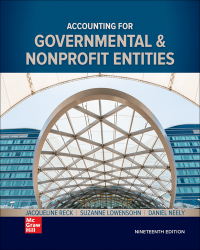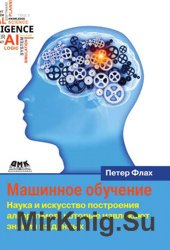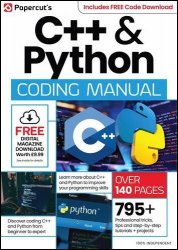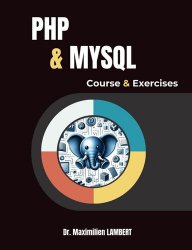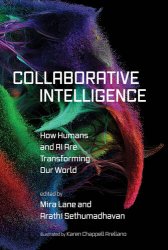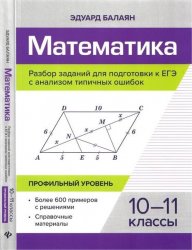 Название: Computational Intelligence in Sustainable Reliability Engineering
Название: Computational Intelligence in Sustainable Reliability EngineeringАвтор: S.C. Malik, Deepak Sinwar, Ashish Kumar
Издательство: Wiley-Scrivener
Год: 2023
Страниц: 341
Язык: английский
Формат: pdf (true)
Размер: 22.3 MB
The book is a comprehensive guide on how to apply Computational Intelligence (CI) techniques for the optimization of sustainable materials and reliability engineering.
This book focuses on developing and evolving advanced computational intelligence algorithms for the analysis of data involved in reliability engineering, material design, and manufacturing to ensure sustainability. Computational Intelligence in Sustainable Reliability Engineering unveils applications of different models of evolutionary algorithms in the field of optimization and solves the problems to help the manufacturing industries. Some special features of this book include a comprehensive guide for utilizing computational models for reliability engineering, state-of-the-art swarm intelligence methods for solving manufacturing processes and developing sustainable materials, high-quality and innovative research contributions, and a guide for applying computational optimization on reliability and maintainability theory. The book also includes dedicated case studies of real-life applications related to industrial optimizations.
Swarm Intelligence (SI) is an important sub-area of optimization that helps develop sustainable materials at nano-, micro-, meso- and macro-levels by identifying the optimum values for different parameters. With the exponential rise in demand for sustainable materials for various purposes, optimization has played an important role over the last few years. Not only is materials data available for researchers and scientists, but sufficient processing resources are also available, which need to be optimized through AI techniques.
Chapter 1 presents a stochastic model for reliability indices of a computer system with priority and server failure. The model is analyzed by using the semi-Markov process and regenerative point technique. The reliability indices, such as mean time to system failure (MTCSF), availability, busy period of the server due to hardware repair and software upgradation, expected number of treatments given to the server, expected number of hardware repair, and software upgradation, are obtained for arbitrary values of the parameters. The profit analysis of the system model has also been carried out to discern the usefulness of the system under different parametric situations.
Chapter 2 presents a study that optimizes the availability of a turbine unit (TU) of a steam turbine power plant (STPP) using mathematical modeling and a genetic algorithm. The mathematical model is developed using the Markovian birth-death process (MBDP) and Chapman-Kolmogorov differential equations derived for the proposed model. The analytical solution of the mathematical model is derived for a particular case by considering exponential distribution for random variables associated with failure and repair rates. By using a nature-inspired algorithm (NIA), namely a genetic algorithm (GA), an effort is made to attain the global solution of the TU.
Chapter 3 covers the development of the Laplacian artificial bee colony (LABC) algorithm for effective harmonic estimator design. For designing the estimator, a hybrid approach based on least square error minimization with the help of a new version of the artificial bee colony algorithm is proposed. The proposed version employs a Laplacian factor-based update equation in the scout bee phase. For proving the modification meaningful, first the proposed algorithm is tested on several standard benchmark problems, and then it is applied to the estimator design problem. Results reported in on both parts indicate that the proposed modification is meaningful and the performance of the LABC algorithm is comparable with that of many other state-of-the-art algorithms.
Audience:
Researchers, industry professionals, and post-graduate students in reliability engineering, manufacturing, materials, and design.
Contents:
Preface
1 Reliability Indices of a Computer System with Priority and Server Failure
2 Mathematical Modeling and Availability Optimization of Turbine Using Genetic Algorithm
3 Development of Laplacian Artificial Bee Colony Algorithm for Effective Harmonic Estimator Design
4 Applications of Cuckoo Search Algorithm in Reliability Optimization
5 Series-Parallel Computer System Performance Evaluation with Human Operator Using Gumbel-Hougaard Family Copula
6 Applications of Artificial Intelligence in Sustainable Energy Development and Utilization
7 On New Joint Importance Measures for Multistate Reliability Systems
8 Inferences for Two Inverse Rayleigh Populations Based on Joint Progressively Type-II Censored Data
9 Component Reliability Estimation Through Competing Risk Analysis of Fuzzy Lifetime Data
10 Cost-Benefit Analysis of a Redundant System with Refreshment
11 Fuzzy Information Inequalities, Triangular Discrimination and Applications in Multicriteria Decision Making
12 Contribution of Refreshment Provided to the Server During His Job in the Repairable Cold Standby System
13 Stochastic Modeling and Availability Optimization of Heat Recovery Steam Generator Using Genetic Algorithm
14 Investigation of Reliability and Maintainability of Piston Manufacturing Plant
Index
Скачать Computational Intelligence in Sustainable Reliability Engineering
[related-news] [/related-news]
Комментарии 0
Комментариев пока нет. Стань первым!

